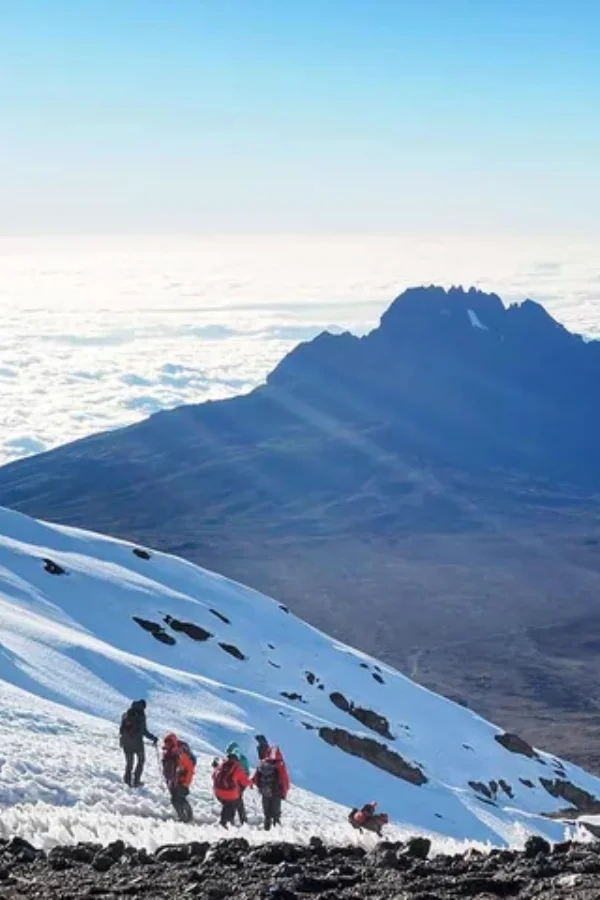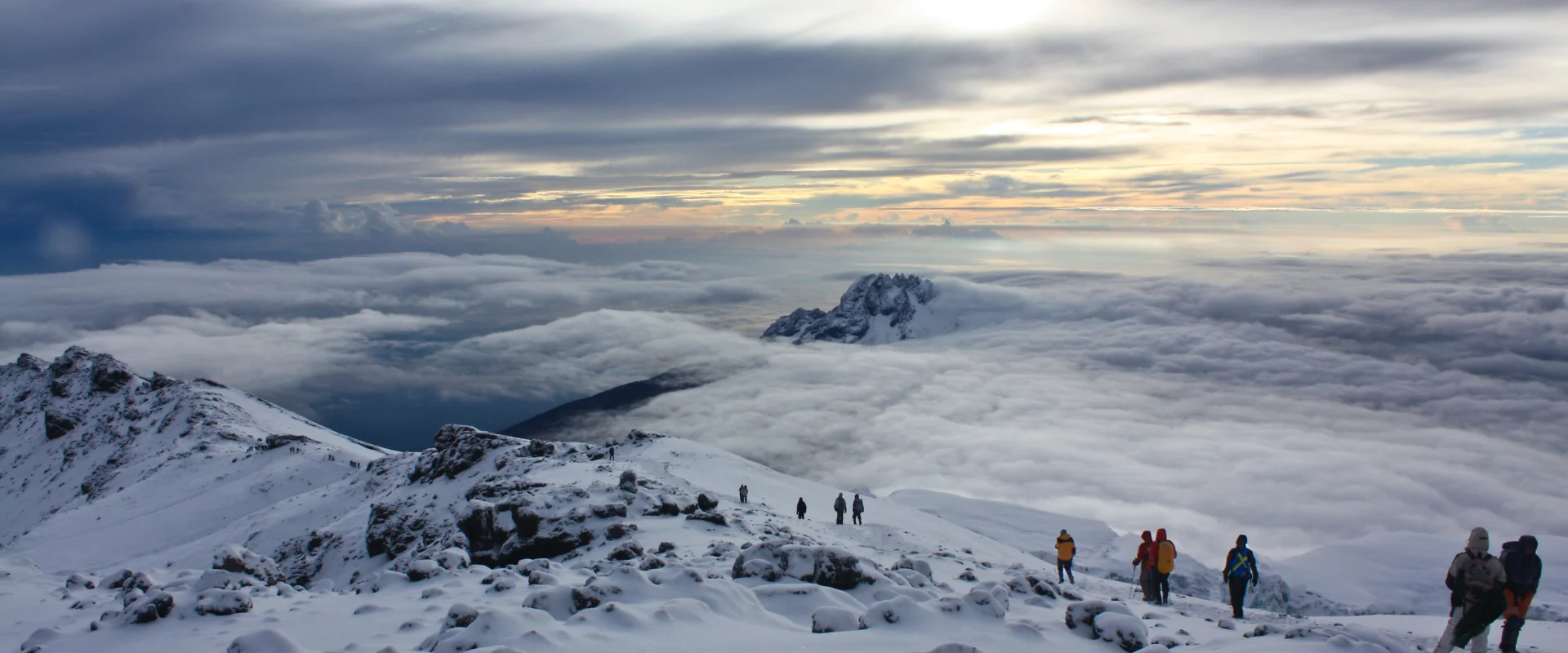Physical Fitness and Training
Physical preparation is crucial for tackling Kilimanjaro. Begin training at least 6 months in advance, focusing on cardiovascular fitness, strength training, and endurance. Activities such as hiking, running, cycling, and stair climbing are particularly beneficial. Incorporate long walks with a weighted backpack to simulate the experience of long trekking days on the mountain.
Mental Preparation
Climbing Kilimanjaro is as much a mental challenge as a physical one. Prepare mentally by setting realistic goals, visualizing the climb, and mentally rehearsing different scenarios you might face on the mountain. Stress management techniques such as meditation can also be helpful.
Packing Essentials
Your gear can make or break your climb. Essential items include:
- Thermal layers for the cold summit night
- Waterproof clothing
- Good quality hiking boots
- A comfortable and supportive backpack
- Sunscreen, sunglasses, and a wide-brimmed hat
- Sleeping bag suitable for sub-zero temperatures
- Headlamp for night trekking
Hydration and Nutrition
Maintain hydration by drinking at least 3-4 litres of water daily during the climb. Your diet should be rich in carbohydrates for energy, with sufficient protein for muscle repair. Energy bars, dried fruits, and nuts are excellent for snacks on the go.
Vaccinations & Medications
Consult with a travel medicine specialist to get any necessary vaccinations and discuss malaria prophylaxis, which is recommended for travel in Tanzania. Also, prepare a medical kit with remedies for common ailments such as headaches, altitude sickness, and gastrointestinal issues.
Research Route and Guides
Choose a route that matches your experience and fitness level. Popular routes like the Marangu and Machame offer different challenges and scenic opportunities. Ensure your guide service is reputable and employs experienced guides who are trained in emergency response.
Understand the Daily Elevation Gains
Be aware of the altitude profile of your chosen route. Understanding daily elevation gains helps in pacing yourself and helps reduce the risk of altitude sickness.
Altitude Medication
Discuss with your doctor the pros and cons of altitude sickness medication like Acetazolamide (Diamox). Starting a dose before ascent can help acclimatize more effectively, but it is not suitable for everyone.
Mental and Physical Rest
Ensure you have rest days scheduled in your climb, especially before the summit attempt. Adequate rest helps the body recover and acclimatize.
Positive Attitude and Enjoyment
Maintaining a positive attitude can significantly influence your experience and success on the mountain. Embrace the journey, enjoy the landscapes, and keep a sense of humour. Remember, reaching the summit is an achievement, but the journey itself is equally rewarding.
By comprehensively preparing across these dimensions—physical, mental, logistical—you’ll maximize your chances of a successful and enjoyable Kilimanjaro summit.
Climb Kilimanjaro with Confidence with Our Effective Preparation Tips!
Finally, you are now equipped with the knowledge and tools to prepare yourself for an incredible Kilimanjaro adventure. Remember, proper physical training, mental preparation, and packing essentials are essential for a successful climb.
As you plan your expedition, don’t forget to partner with African Traces. With our expertise and experience, we can guide you through every step of your journey. So, take the next step and turn your Mount Kilimanjaro Climbing dreams into reality




A few months have passed, and I am still immersed in a happy and wonderful safari trip, with beautiful grasslands, lazy lions, and clever zebras... I am very grateful to the enthusiastic Marko, who planned based on my needs